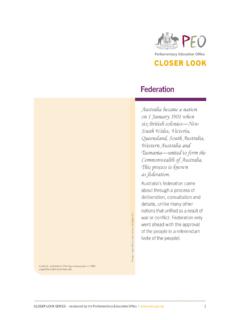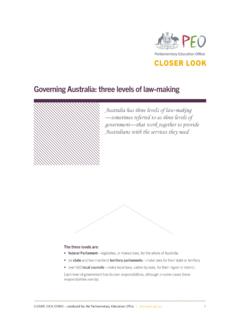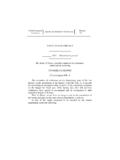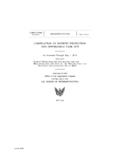Transcription of MAKING A LAW - PEO
1 FACT SHEE TS produced by the Parliamentary Education Office | FACT SHEETSMAKING A LAWA proposal for a new law or a change to an existing one is called a bill (see Bills and Laws).A bill can only become a law if it is passed by a majority vote in the House of Representatives and the Senate. The bill must be agreed to in identical form by both chambers, and given Royal Assent by the Governor-General. It is then known as an Act of of a billMost bills are introduced into the House of Representatives and then sent to the Senate. Bills may commence in the Senate, except for money and taxation bills. Most bills are introduced by government ministers; however, other members of parliament can introduce their own bills, known as private members or private senators and number of billsIt may take weeks or even months for a bill to pass through Parliament. However, an urgent bill can be passed in a matter of days.
2 About 200 bills are introduced into Parliament each year and about 90 per cent are passed into practice of the Clerk reading the bill aloud three times dates back to the early days of the British Parliament, before printing was invented or many people could read. The Clerk had to read the bill aloud so that members of parliament knew what the bill was websiteFact Sheet: Amendments websiteHouse of Representatives Infosheet: MAKING laws Brief: The Senate and Legislation OF REPRESENTATIVESGOVERNOR-GENERAL1ST READING1ST READING 2ND READING2ND READING 3RD READING3RD READINGC onsideration in detail*Committee of the whole*House committee*Royal Assent by theGovernor-General *optional stage BILL BECOMES AN ACTOF PARLIAMENT BILL IS PASSEDBILL IS PASSEDSENATES enate committee* 1st reading the bill is introduced to the House of Representatives. 2nd reading members debate and vote on the main idea of the bill.
3 House committee* public inquiry into the bill and reporting back tothe House. Consideration in detail* members discuss the bill in detail, including any changes to the bill. 3rd reading members vote on the bill in its final form. The bill is passed in the House of Representatives and sent to the Senate. 1st reading the bill is introduced to the Senate. 2nd reading senators debate and vote on the main idea of the bill. Senate committee* public inquiry into the bill and reporting back to the Senate. Committee of the whole* senators discuss the bill in detail, including any changes to the bill. 3rd reading senators vote on the bill in its final form. The bill is passed in the Senate. Royal Assent The Governor-General signs the bill. Bill becomes an Act of Parliament a law for Australia. THE usual PATH of a BILLS enate referral The Senate may refer the text of the bill to a Senate committee for inquiry (this can happen while the bill is in the House).









